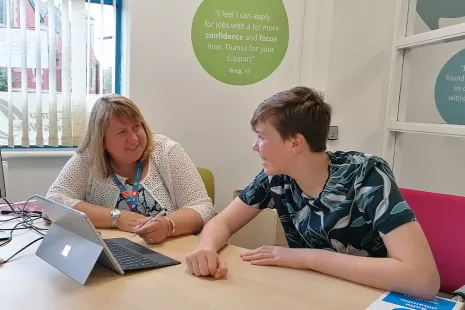This section is for parents and carers of young people with additional learning needs. It aims to support you with your child's next steps.

Find out how you can support your child with their next steps and how Careers Wales are here to help.

Explore the options available to your child and how Careers Wales can support.

Our careers advisers can help your child with their next steps after leaving education. Look at the support available and how you can help.

Learn more about the key legislation and support agencies available to support you and your child.

Find out the support available from Careers Wales to help you and your child plan for the future.

Read our parent newsletter - ALN edition and find out how Careers Wales can support you.

